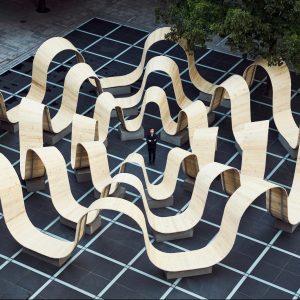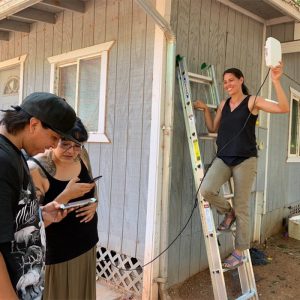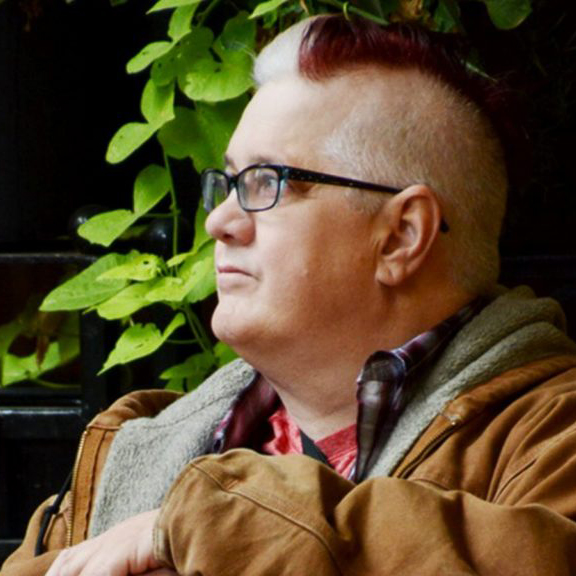Link About It: This Week’s Picks
More inclusive language, flying water taxis, London Design Festival highlights and more in our look around the web

Non-Binary Version of “They” Added to the Dictionary
 In a significant step toward inclusivity, and another reminder of how powerful words are, Merriam-Webster has added the non-binary “them” to their dictionary. While accepting that the singular “they” has actually been in use for centuries (since the late 1300s, in fact), by adding it as a non-binary pronoun Merriam-Webster reinforces a more recent and remarkably important development. As Dennis Baron, professor emeritus of English and linguistics at the University of Illinois tells the Washington Post, “Language responds to social change. Things that need to be expressed get expressed.” Read more there.
In a significant step toward inclusivity, and another reminder of how powerful words are, Merriam-Webster has added the non-binary “them” to their dictionary. While accepting that the singular “they” has actually been in use for centuries (since the late 1300s, in fact), by adding it as a non-binary pronoun Merriam-Webster reinforces a more recent and remarkably important development. As Dennis Baron, professor emeritus of English and linguistics at the University of Illinois tells the Washington Post, “Language responds to social change. Things that need to be expressed get expressed.” Read more there.
NASA-Built Autonomous Drone Set to Rove Titan
 A mission to send a nuclear-powered, autonomously-operating drone to one of Saturn’s moons will commence in 2026—and the craft, nicknamed Dragonfly, will arrive in Titan’s atmosphere in 2034. Then, the sedan-sized probe will investigate the lower-gravity surface’s dunes, mountains, rivers, and lakes—and report back instantly (though a transmission takes almost two hours from Titan to Earth). Another one of Dragonfly’s tasks will be to create a map of the moon’s surface. “We don’t actually have a map. There’s no GPS; there’s no magnetic field even to orient yourself,” Doug Adams, a spacecraft systems engineer, tells NPR. To get around, “the drone will navigate by continuously photographing the landscape, creating its own ‘map’ as it goes.” Read more there.
A mission to send a nuclear-powered, autonomously-operating drone to one of Saturn’s moons will commence in 2026—and the craft, nicknamed Dragonfly, will arrive in Titan’s atmosphere in 2034. Then, the sedan-sized probe will investigate the lower-gravity surface’s dunes, mountains, rivers, and lakes—and report back instantly (though a transmission takes almost two hours from Titan to Earth). Another one of Dragonfly’s tasks will be to create a map of the moon’s surface. “We don’t actually have a map. There’s no GPS; there’s no magnetic field even to orient yourself,” Doug Adams, a spacecraft systems engineer, tells NPR. To get around, “the drone will navigate by continuously photographing the landscape, creating its own ‘map’ as it goes.” Read more there.
Luxury Action’s Pop-Up Hotel at the North Pole
 Ten heated glass-dome igloos, each with an en-suite toilet, will comprise travel operator Luxury Action’s pop-up hotel in the North Pole next year. It will be stationed in the center of the frozen Arctic Ocean during April (a one-month window is all that’s safe for helicopter travel), and a one-night stay comes complete with a chef, Arctic wilderness guide, on-site camp manager, and security team. As the northernmost hotel in the world, it promises guests a clear view of the northern lights—from their beds. The $105K price tag includes a two-night stay in Svalbard and all equipment necessary to keep warm. Learn more at MarketWatch.
Ten heated glass-dome igloos, each with an en-suite toilet, will comprise travel operator Luxury Action’s pop-up hotel in the North Pole next year. It will be stationed in the center of the frozen Arctic Ocean during April (a one-month window is all that’s safe for helicopter travel), and a one-night stay comes complete with a chef, Arctic wilderness guide, on-site camp manager, and security team. As the northernmost hotel in the world, it promises guests a clear view of the northern lights—from their beds. The $105K price tag includes a two-night stay in Svalbard and all equipment necessary to keep warm. Learn more at MarketWatch.
SeaBubbles’ Flying Water Taxis Open For Public Trials in Paris
 After successful tests in Lake Geneva and along the River Seine in Paris circa 2018, SeaBubbles’ Hydroptère “flying” water-taxi now opens for public trials until 20 September. Designed by aeronautical engineers, the four-person vehicle—which lifts a few meters into the air when moving—aims to reduce congestion on streets and provide a low-impact travel alternative. It’s powered by two electrically driven propellers—and batteries are recharged through solar panels and energy harnessed in turbines during the landing stage. Read more at designboom.
After successful tests in Lake Geneva and along the River Seine in Paris circa 2018, SeaBubbles’ Hydroptère “flying” water-taxi now opens for public trials until 20 September. Designed by aeronautical engineers, the four-person vehicle—which lifts a few meters into the air when moving—aims to reduce congestion on streets and provide a low-impact travel alternative. It’s powered by two electrically driven propellers—and batteries are recharged through solar panels and energy harnessed in turbines during the landing stage. Read more at designboom.
Paul Cocksedge’s Wooden Wave Pavilion at the 2019 London Design Festival
 Now in its 17th year, the London Design Festival again celebrates imaginative work by a global roster of artists, architects and designers citywide. Commissioned by Broadgate, Paul Cocksedge’s large-scale pavilion, called “Please Be Seated,” makes this year’s highlights list. The designer employed scaffolding planks in this collaboration with ARUP and high-end interiors company, White & White. Each undulation can be used as an archway or place to rest, for the duration of its run, until 11 October. Learn more at Arch Daily.
Now in its 17th year, the London Design Festival again celebrates imaginative work by a global roster of artists, architects and designers citywide. Commissioned by Broadgate, Paul Cocksedge’s large-scale pavilion, called “Please Be Seated,” makes this year’s highlights list. The designer employed scaffolding planks in this collaboration with ARUP and high-end interiors company, White & White. Each undulation can be used as an archway or place to rest, for the duration of its run, until 11 October. Learn more at Arch Daily.
Continental US’ Most Isolated Tribe Gets Internet
 The ultra-remote Havasupai reservation, which sits at the floor of the Grand Canyon, remains inaccessible to cars, trains and, until now, broadband internet. Thanks to Oakland-based non-profit MuralNet, seven Havasupai families from the 450-member tribe can finally use cell phones and connect to the web. With help from Flagstaff-based Niles Radio, MuralNet installed “microwave hops” at the rim of the canyon that transmit signals down into their villages. It’s just the start as MuralNet and a second provider work with the FCC moving forward. The newfound access will hopefully provide better education for kids and teens—as many nine and 10 year olds still test at the kindergarten level—and offer the opportunity to learn jobs they usually outsource. Further, internet access could provide a heads-up to impending floods and other natural phenomena. Read more at NPR.
The ultra-remote Havasupai reservation, which sits at the floor of the Grand Canyon, remains inaccessible to cars, trains and, until now, broadband internet. Thanks to Oakland-based non-profit MuralNet, seven Havasupai families from the 450-member tribe can finally use cell phones and connect to the web. With help from Flagstaff-based Niles Radio, MuralNet installed “microwave hops” at the rim of the canyon that transmit signals down into their villages. It’s just the start as MuralNet and a second provider work with the FCC moving forward. The newfound access will hopefully provide better education for kids and teens—as many nine and 10 year olds still test at the kindergarten level—and offer the opportunity to learn jobs they usually outsource. Further, internet access could provide a heads-up to impending floods and other natural phenomena. Read more at NPR.
Link About It is our filtered look at the web, shared daily in Link and on social media, and rounded up every Saturday morning.












